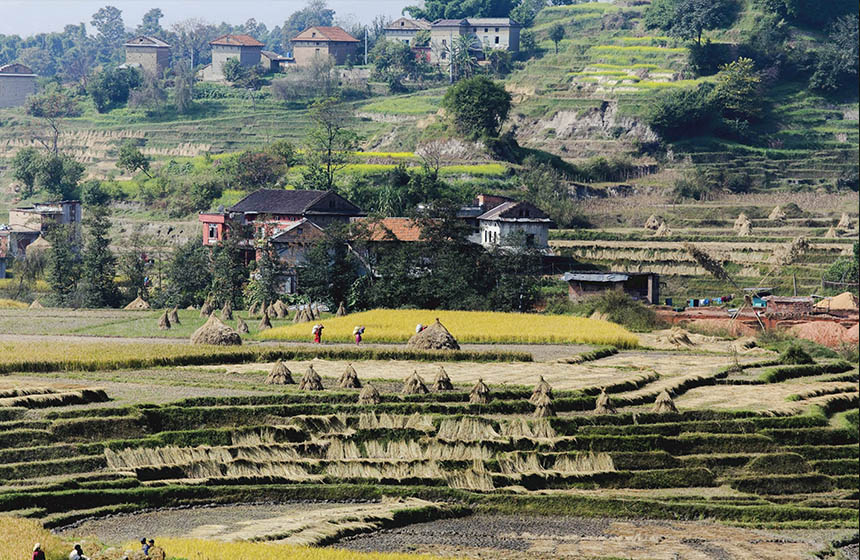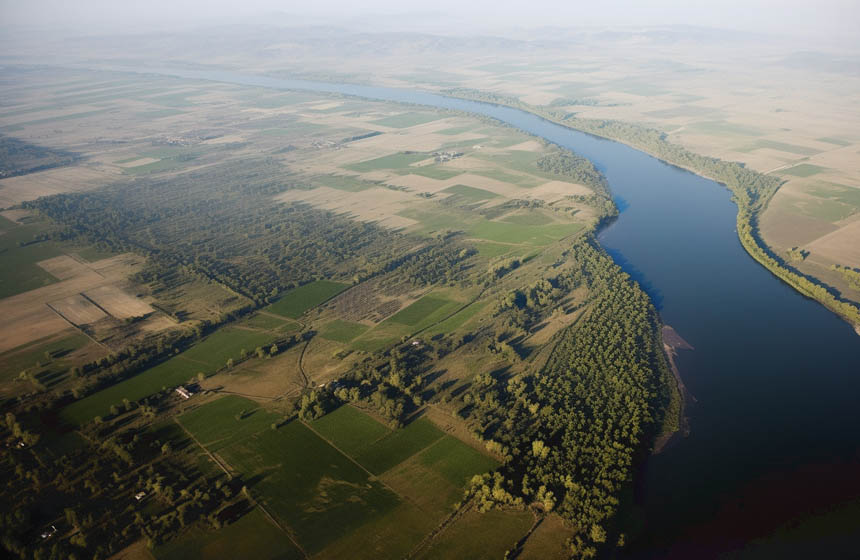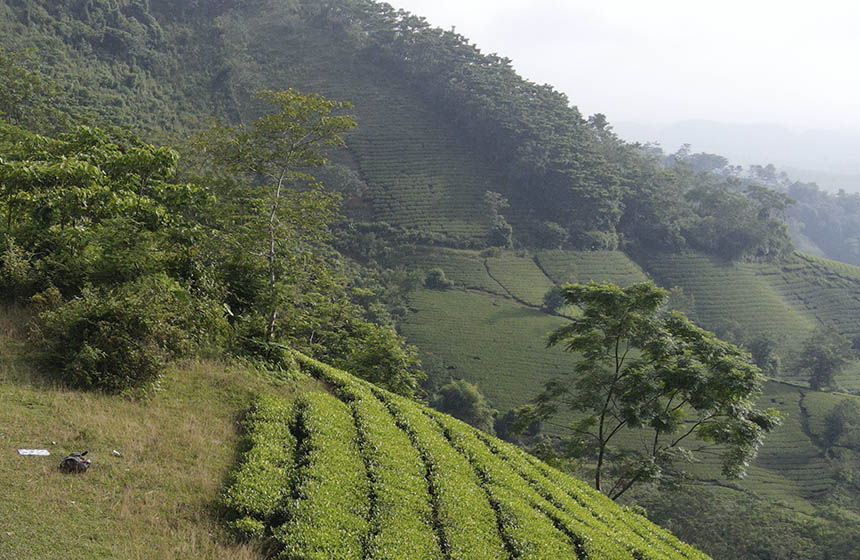Conservation, forest restoration, and organic soil nutrient management in mountain ecosystems
Conservation, forest restoration, and organic soil nutrient management in mountainous areas of the Panchase region of Nepal aim to strengthen adaptive capacity of local communities and ecosystems.
Nature-based Intervention:
Working with national partners as well as 17 village development committees, the Nepal Mountain EbA project included maintaining and restoring ecosystems through agroforestry, forest resource conservation, plantation of fodder and broom grass species, restoration of wetlands, springs, and ponds, organic vegetable farming, promotion of bee-keeping, climate-smart agricultural practices, forest management activities, and more. Soil nutrient management was also promoted through the use of organic nutrients from compost dung and animal urine.
Overview of context and outcomes:
The Mountain Ecosystem-based Adaptation Project implemented in Nepal as one of several in a global programme took place in three districts: Kaski, Parbat, Syangja in the Panchase region.
Case effectiveness on
Climate change
According to interviews with local community members, the interventions implemented have decreased vulnerability to climate variability and extreme weather events. Interviewees mentioned that interventions helped reduce forest fires, the plantation of broom grass prevented landslides, the restoration of ponds provided protection against water-related natural hazards, agricultural systems are exhibiting increased resilience, and the restoration of ponds have improved water availability for irrigation and livestock production.
Ecosystem health
Ecological effect: PositiveAccording to interviewees, ecosystem resilience in Panchase had improved after the project, and all agreed that ecosystem services had been maintained or restored. Restored ponds and forest management activities have reportedly contributed to groundwater recharge. This increased water availability is reported to help support biodiversity conservation, especially through the provision of water for birds and other wild animals. Broom grass cultivation was found to have helped control invasive species. Bee-keeping is reported to have increased species diversity by increasing pollination and productivity.
Socioeconomic outcomes
Interviewees reported that local economic conditions had improved through the production of non-timber forest products, increased crop productivity (largely resulting from pollination through bee-keeping and the use of organic manure and urine to enhance soil productivity), and costs savings resulting from reduced reliance on chemical inputs. The restoration of ponds and natural springs has reportedly led to a decrease in rates of waterborne disease in humans. The interventions, including pond restoration, have reportedly reduced conflict over resources.
Governance
The project has a diverse set of collaborators working to govern the implementation. They include the IUCN, 17 Village Development Committees, the Ministry of Forest and Soil Conservation, the Ministry of Population and Environment, local governments, Machhapuchhre Development Organization, and Panchase Protected Forest Council.
Finance
This project was funded by the German Federal
Ministry for the Environment, Nature Conservation and
Nuclear Safety.
Monitoring and evaluation
While some monitoring has taken place, the organizing institutions point to the need for more extensive and robust monitoring to take place.
Trade-offs and limitations
Some local peoples interviewed felt there was a tradeoff in e in ecosystem service provision, with the environmental investments being put in upstream being accrued by those which lived downstream.

Intervention type
- Created habitats
- Food production
- Management
- Restoration
Conducted at landscape scale
Ecosystem type
- Created grassland
- Temperate forests
- Montane/Alpine
- Streams, rivers, riparian
- Terrestrial production
- Wetlands
Climate change impacts addressed
- Loss of food production
- Mudslides / Landslides
- Reduced water availability
- Wildfire
Instigators
- International development organization
- International conservation/environment organization
- National government/agency
Societal challenges
- Biodiversity conservation
- Climate change adaptation
- Conflict and Security
- Disaster risk reduction
- Economic and Social development
- Rights/empowerment/equality
- Food security
- Health
- Water security
Outcomes
- Food security: Positive
- Water security: Positive
- Health: Positive
- Local economics: Positive
- Livelihoods/goods/basic needs: Not reported
- Energy security: Not reported
- Disaster risk reduction: Positive
- Rights/empowerment/equality: Positive
- Conflict and security: Positive
- No. developmental outcomes reported: 9
Resources
Read resource 1Literature info
- Grey literature



